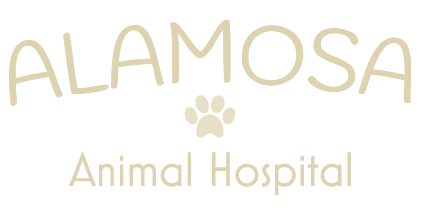Library
-
African greys are vulnerable to both calcium and/or vitamin A deficiencies, as well as obesity. Feeding a well-balanced diet and making sure your parrot consumes the proper proportions of foods offered will help prevent the development of these conditions. Pellets are the ideal food for your pet African grey and should represent approximately 75-80% of your bird's diet. The remainder of the diet should be comprised of fresh fruits, vegetables, and a small amount of seed (if any).
-
Amazons are vulnerable to calcium and vitamin A deficiencies, and when fed a predominantly seed-based diet, they are prone to obesity. Feeding a well-balanced diet in the proper proportions will help prevent the development of these conditions. This handout provides guidelines for providing your Amazon parrot with an optimal diet to thrive and flourish.
-
Budgerigars (parakeets) originated in the grasslands of Australia. In the wild, they eat a variety of seeds as well as natural vegetation. Pet budgies fed an all-seed diet may develop a number of nutritional deficiencies. It is recommended to feed a mix of pellets, seeds, fruits, and vegetables.
-
Pet canaries should be fed a well-balanced and varied diet at all times. Several commercially formulated pelleted diets in various colors, shapes, and sizes have been developed to meet all birds' nutritional needs. Your bird's health depends on how well it is fed.
-
As with all other animals, birds need a proper balance of carbohydrates, proteins, fat, vitamins, minerals, and water. The bulk of a finch’s diet should be commercially available pelleted food along with a smaller amount of fresh produce and a small percentage of seed.
-
Lories and lorikeets are also known as "brush tongued parrots" due to their unique tongues that are adapted for their highly specialized dietary needs. Lories and lorikeets eat nectar and pollens in the wild. They also consume soft foods like fruits, berries, flower blossoms, and buds.
-
Meyer’s parrots consume a variety of seeds, nuts, fruits, berries, and some vegetation in the wild. Occasionally, wild Meyer's parrots will feed on grain crops. As with all other animals, Meyer’s parrots need a proper balance of carbohydrates, proteins, fat, vitamins, minerals, and water. Pellets are the ideal base diet for most pet birds.
-
Birds need a proper balance of carbohydrates, proteins, fat, vitamins, minerals, and water. Poor nutrition is a common reason for many health problems in birds. Pellets are the ideal diet for birds and should ideally represent approximately 75%-80% of the bird's diet.
-
Poor nutrition is a common reason for many health problems in birds. Cockatoos are vulnerable to vitamin A deficiency, high cholesterol, atherosclerosis, stroke, insufficient dietary calcium, egg-binding, and other nutrition-related problems. Pellets are the ideal diet for birds and should ideally represent approximately 75%-80% of the bird's diet.
-
Birds need a proper balance of carbohydrates, proteins, fat, vitamins, minerals, and water. Poor nutrition is a common reason for many health problems in birds. Conures are vulnerable to vitamin A deficiency, insufficient dietary calcium, egg-binding, and other nutrition-related problems. The recommended diet for conures is pelleted food formulated for birds and should ideally represent approximately 75%-80% of the bird's diet.

